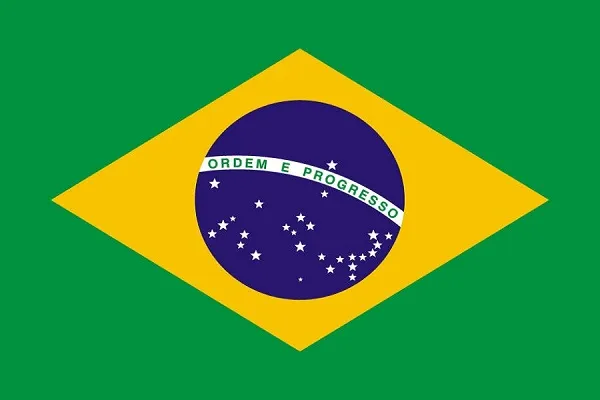A report highlights carbon credit processes as one of the trends for Climate Tech startups in 2024, and a bill regulating the market might come into effect later this year, according to the founder of B4, the first carbon exchange in Brazil. With this, ESG gains more strength in companies.
It is evident that the theme of sustainability and ESG in companies has been gaining momentum for several years, but in 2024, the trend is for these issues to move from being a differentiator to being a central focus for companies that want to work towards environmental protection and combating climate change.
Within this context, one market stands out: the carbon market. It emerges prominently and becomes one of the top 4 trends within Climate Techs, according to a report produced by Endeavor.
And it is no surprise that this topic is emphasized, as, according to the Intergovernmental Panel on Climate Change (IPCC), 90% of the world’s Gross Domestic Product (GDP) is currently committed to carbon neutrality, also known as net zero.
Furthermore, according to the IPCC, carbon dioxide emissions need to be reduced by at least 43% by 2030 to avoid a more widespread climate crisis.
“When we see the carbon credit market rising, we should not only focus on the financial opportunity with excellent projections for investors and entrepreneurs who will profit from it but also celebrate an important step towards reducing greenhouse gas emissions. This reduction impacts the effects of climate change and, primarily, what we call global warming, also contributing to its reduction,” says Odair Rodrigues, CEO and founder of B4, the first carbon credit exchange in Brazil.
Carbon Market as an ESG Arm in Companies
Decarbonization goals are the starting point for companies with an ESG culture that are beginning their sustainability journey, especially those emitting more CO2 in their activities. It is no coincidence that discussions about the bill regulating the sector have been in the spotlight since it was approved by the Chamber of Deputies on December 21, 2023 – now the bill moves to the Senate and, if approved, will need only the president’s sanction to come into effect.
The bill creates the SBCE – Brazilian System for Trading Greenhouse Gas Emissions, which essentially regulates companies in Brazil that emit more than 10,000 tons of CO2 annually.
Companies emitting between 10,000 and 25,000 tons of gas will need to present a monitoring plan for these emissions to the System’s managing body, and those emitting more than 25,000 tons will be required to submit a periodic reconciliation report annually to the SBCE.
In other words, with the regulation of the carbon market in the country, the sector is expected to become even more dynamic, both in terms of financial investment (with carbon credit trading) and, more importantly, in terms of controlling and reducing CO2 emissions. All this enhances the sustainability proposed by ESG within companies.
“When we look at the ‘S’ of sustainability, we understand that there is still an idea that sustainability is built only with small internal actions, such as separating recyclable waste or implementing rules for employees, like using water bottles instead of plastic cups. Of course, these actions are essential to start a process of education and introduction to sustainable practices, but it is crucial for entrepreneurs to know that there is a much larger universe beyond these small actions when we talk about sustainability, and that’s where the carbon market comes in,” says Odair Rodrigues, CEO of B4.
The carbon market thus emerges as a lever for companies, which, besides implementing ESG as a way to stand out in the market and attract investors, also contributes to the entire ecosystem working to reduce CO2 emissions in the atmosphere.
Sustainability Journey at B4
In this context of ESG in companies and the carbon market, B4 – the world’s first carbon credit exchange – is working to build a kind of “bridge” for companies to cross the boundaries of corporate sustainability as merely a financial strategy but also as a solid culture aiming to truly preserve the environment, mitigating and reducing the carbon footprint while contributing to corporate sustainability actions.
Among the actions taken by B4 is the hiring of new sustainability managers, as well as reinforcing the company’s sustainable positioning and goal. “We started 2024 with an even stronger commitment to sustainability and brought a corporate sustainability specialist into the team. We understand that having someone with expertise in this area is a lever for us to grow even more, with well-structured processes and a perspective on sustainability that goes beyond mere commercial strategy,” says Odair Rodrigues.
For 2024, B4 has also prepared repositioning news, such as the structure to offer all the necessary support for companies wanting to create planning actions to reduce greenhouse gas emissions, in addition to engaging more in educational themes, with courses and other training to be announced soon.
“This year we will ‘break bubbles’ with B4, positioning ourselves as collaborators with those companies that understand the value of corporate sustainability and truly want to create projects that reduce the negative impacts on the environment. If initially, we positioned ourselves as a carbon credit exchange aiming to be a bridge for trading these assets, today we have broadened our horizon, combining the expertise of our team in favor of a total change in companies regarding sustainability. We will not only provide consulting services but also invest in applied intelligence, with monitoring, planning, and management of companies’ environmental and climate actions,” concludes B4 CEO Odair Rodrigues.
About B4
Acting as a facilitator in the carbon credit market: this is one of B4’s main goals, the first carbon credit exchange in Brazil, which was launched in August this year, in São Paulo, at an event that brought together over 100 people, including representatives from Non-Governmental Organizations (NGOs), entrepreneurs, and investors.
Through Blockchain technology, B4 presents a solution that transforms assets, making carbon credit records immutable, avoiding credit duplication, and ensuring a transparent and secure environment.
“B4 emerges precisely with the purpose of acting as a facilitator in this carbon credit market, which is extremely valuable and growing strongly, not only in Brazil but worldwide. Our expectation is that the company will handle up to R$ 12 billion in carbon credits in its first year. Therefore, national regulation of this market is very important to us and also to all companies and organizations genuinely concerned with global sustainability,” says Odair Rodrigues.







